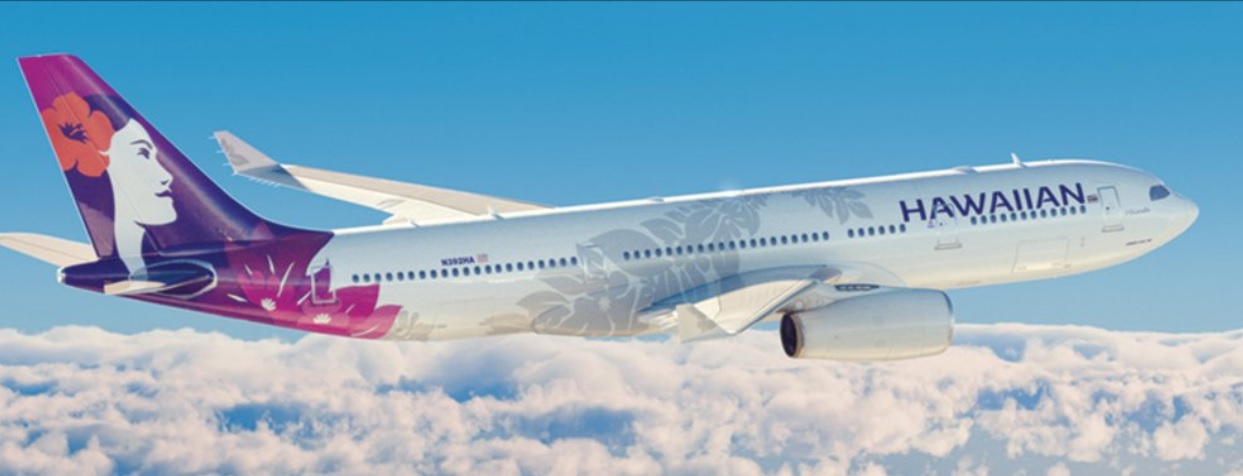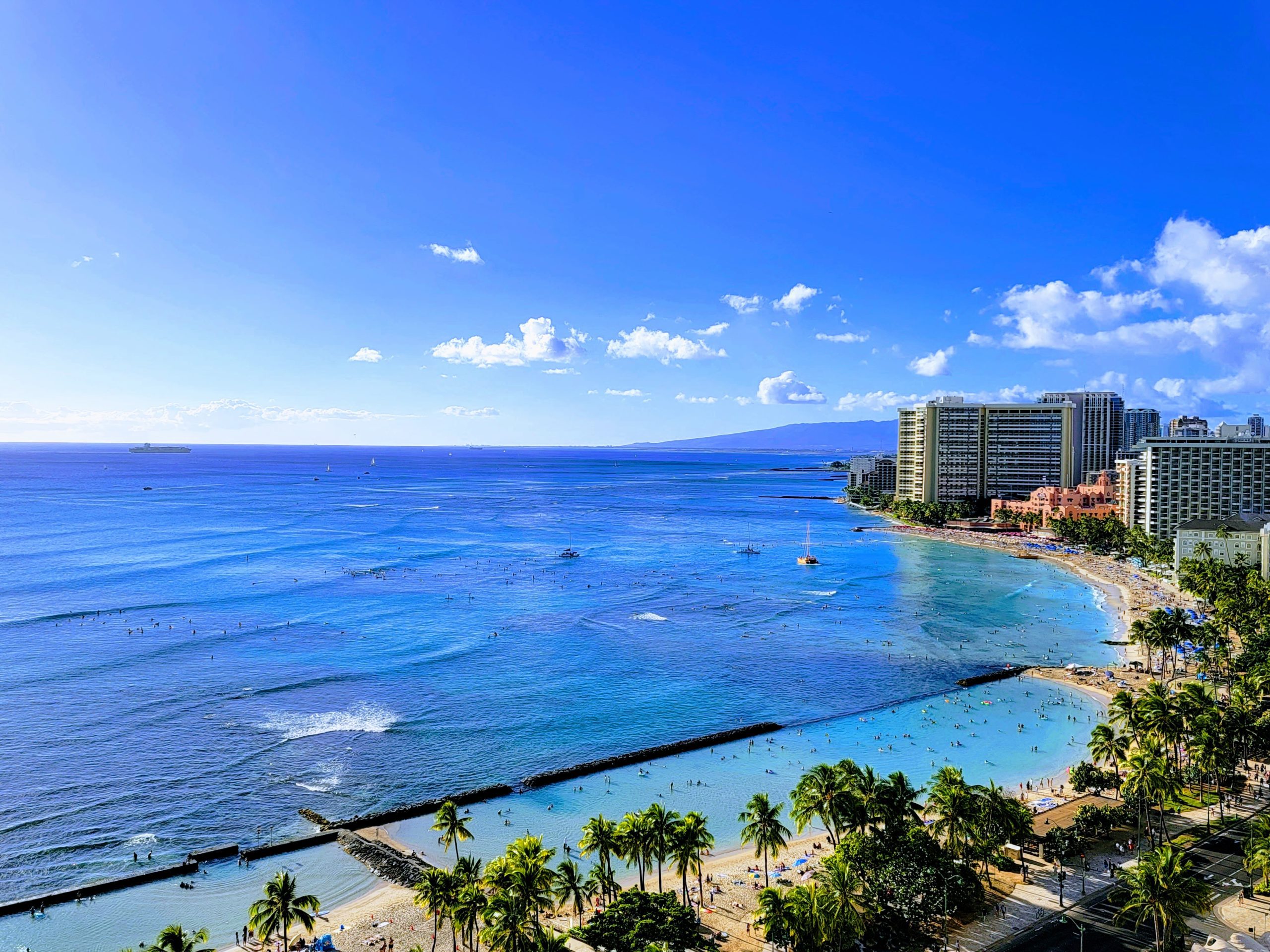Now that Alaska Airlines has announced plans to acquire Hawaiian Airlines, there is significant speculation about what it will mean for airfares, with one study claiming a 38% increase for Hawaiian Airlines fares. That’s important to anti-trust discussions over whether the deal will be approved, but it’s not how airfares work. And traditional anti-trust analysis is probably the wrong way to think about what will happen to this merger.

Be Skeptical About Claims Of Higher Fares Once Alaska Buys Hawaiian
Enilria analyzed domestic fares for the first half of 2023 and found that Alaska Airlines stage-length adjusted fares (including fees) are much higher than Hawaiian’s.
Specifically, he found that on average Alaska Airlines charged $241 per 1,000 miles flown versus $175 for Hawaiian.
And he concludes that if Alaska Airlines is able to buy Hawaiian Airlines, they’ll raise Hawaiian Airlines fares by 38% up to Alaska levels. But this makes very little sense.
As he acknowledges, low fares on Hawaiian are the result of:
- Highly competitive markets. U.S. mainland – Hawaii markets face competition among Hawaiian, Alaska, Southwest, United, American and Delta and there’s no real barriers to increased flying, and flying within the state of Hawaii includes heavy competition from Southwest.
- Leisure passengers. Hawaii travel is predominated by price-sensitive leisure passengers, rather than schedule-sensitive business passengers.
None of that changes. If Alaska acquires Hawaiian and removes capacity from the market and no one else increases capacity to offset this then fares might rise, mostly to the benefit of airlines that do not cut capacity. This would be great for Southwest and United especially.
But these aren’t routes with moats, such as heavy gate constraints in most cases or slot controls. Even where capacity is limited, airlines could easily shift flying into the Hawaii market.
Comparing Alaska’s fares within the Continental U.S. or between the Continental U.S. and Alaska with Hawaiian’s route network and assuming that Hawaiian’s fares rise as a result is simply a stretch. Increasing those fares by 38% is not a credible projection.
Now, in support of his argument he hypothesizes that since
- Alaska bought Virgin America and backed away from New York JFK – Los Angeles
- And fares in that market are now higher than they were in 2016
- Alaska’s acquisition drove the fare increase
That’s a rather odd take, first in an inflationary environment (comparing fares that aren’t adjusted for inflation) and second because a lot has changed in airfares generally and in the New York – LA market over the past 7 years and especially since Covid.
More broadly, industry consolidation since deregulation has been consistent with falling average fares, inclusive of fees, rather than rising fares.

Will Alaska-Hawaii Gain Anti-Trust Approval?
I’ve heard a lot of speculation that the Department of Justice won’t finish its review of the acquisition prior to the end of President Biden’s first term. So if he’s not re-elected, the deal has a greater chance of approval. I’m not sure that’s the right way to be thinking about anti-trust scrutiny here.
- Federal approval of mergers isn’t necessarily a Republican versus Democrat issue. United-Continental, American-US Airways, Southwest-AirTran, and Alaska-Virgin America all happened during the Obama administration.
- The Trump administration didn’t approve major airline mergers but did sign off on the American Airlines-JetBlue joint venture, and then the Biden administration reversed that position. The Biden administration has taken stronger, and more novel, stances on anti-trust.
- There’s no reason to suspect a second Trump administration would be ‘normie Republican’ as opposed to more populist and anti-business.
This deal probably doesn’t have anti-trust problems by traditional measures (as understood during the Obama administration) but may have significant problems with a Biden DOJ, at least and especially if they win their case against JetBlue’s acquisition of Spirit.
However Hawaiian is enough of a special case, of primary importance to the local Hawaii market, that enough support from Hawaii’s Governor and two Senators may sway the Biden administration not to oppose it.
Does An Alaska-Hawaiian Merger Make Sense?
Enilria concludes that “If Alaska is not successful boosting Hawaiian’s average fare to Alaska’s level the merger would make little sense.” That’s exactly right. Simply buying Hawaiian Airlines isn’t going to earn a substantial revenue premium compared to their current operation. It doesn’t change anything about the fundamentals of the Hawaii market. And as a result, it doesn’t make sense.
Alaska could deploy $2 billion and earn a higher return investing outside the airline industry and that is what they should have done. They should stop thinking about an airline, and the route map as a battlefield, trying to execute battle plans rather than earning the highest possible returns on invested capital.
It’s a great deal for Hawaiian shareholders who earn a substantial premium for their equity. Customers should largely be fine under this deal, although some will win and others lose as fleet decisions and route networks shift over time.
But for Alaska Airlines, they’re buying assets in a highly competitive market that have been losing money, without any particular moat. They are buying planes, pilots, and a brand. They say they’ll preserve the brand but that will limit merger synergies. Even after this deal, they remain substantially smaller than Delta, American, United, and Southwest.
And Honolulu simply isn’t a great hub. Hawaii is a strong leisure destination, but a highly competitive one. It’s not a transpacific connecting hub given its geography and the trend towards non-stop flights from the mainland. They’ll get fleet complexity just as they’ve eliminated that complexity from their Virgin America acquisition – which spent too much money and ultimately got them little.


Simple question, has there been any domestic airline merger in the last 10 or 20 years that did not result in higher fares in some of the markets that had overlapping service?
@David P: Well said. Totally agree with your comment.
My guess is that Alaska Airlines could liquidate itself and probably get better return on capital. Still even with all of the MBAs, we still have capital loser airlines.
This is a mystery acquisition. My *guess* is that Alaska must think that they can leverage their loyalty program to juice the results. Or maybe they don’t want someone else to buy this dog. Or they have some solution to cut costs with the intra-island business.
I have really enjoyed the coverage of Hawaiian. I had no idea they were such financially poor operation.
I will be willing to bet a large sum of money that Seattle to any Hawaiian island, as well as Portland to any Hawaiian island will increase in price. Alaska is notoriously more expensive, but I feel like we will be loosing the current Hawaiian Airlines service and prices will rise. The only other competition is meager Delta frequencies.
But, I hope the prices don’t go up and I am wrong…it’s the warmest most convenient tropical place we have in the northwest!
First of all , this is not a merger , that would involve both Airlines flying under one brand, this will actually be two separate entities. Why can’t people research before spreading BS for people to read.
The US federal courts are heavily stacked with corporate apologists.
The executive branch — including the relevant government departments and regulatory agencies — are also inclined to be corporate apologists given the revolving door benefits/concerns and other avenues of regulatory capture.
The legislative branch? Well, Congress is such a swamp full of characters that not much can be expected from them except a public circus and grandstanding to try to make someone else look bad more than to solve a real problem.
This seems to be more or less a constant regardless of which party’s nominee is elected President.
HNL could become a great hub. SEA-HNL-SYD, SEA-HNL-AKL California or SW US cities to HNL then connect onwards to NRT and other Asian cities would work. No reason why it shouldn’t since HA is already flying from HNL to the South Pacific and Asia. Line up your US arrivals/departures on AS, and it’s a ton of extra feed.
Market AS to Asia and South Pacific from the US and you will have a winning alternative. Free stopovers in HI could boost the local economy as well.
The deal is very positive for Hawaii. In fact they are saying that with this deal service to MKK and LNY could be restored. It’s a huge plus for Hawaii with no downside. More flights, not less ( more mainland, Asia and new service to London)The people making claims about the “Biden Administration” are laughably transparent. You don’t suppose they are twisting the truth to make political points do you?….Republicans?….LOL
If anything Trump would veto it just because the two airlines are from blue states and he supports SWA from Texas. He’s obviously that unstable and impulsive.
@Randy, for the record it will be one airline, one operating certificate and merged seniority lists. To your point though, Hawaiian will continue as Hawaiian airlines. Much of what Hawaiian’s worth is in it’s name and service. All any airline is is airplanes, properties, market share etc. The one thing that stands Hawaiian apart from all others is it’s truly representative of it’s name and is a very powerful marketing tool for people traveling to Hawaii. Alaska has been very smart in recognizing this and appears to be capitalizing on this.
Regarding Alaska Airlines could make more money by investing. 25 years ago, working for local government, I was assigned to our airport for a project. At a management briefing airport administration told us a joke to make a point about airlines, money, airport financing, airlines that come and go. “Want to be a millionaire? Start out as a billionaire and buy an airline.”
The airlines told us after the 2008 financial crisis that they wanted to return to a landscape similar to the one which existed the 1960s and 70s, where fewer passengers were transported at a higher premium. No one should be surprised about higher airfares.